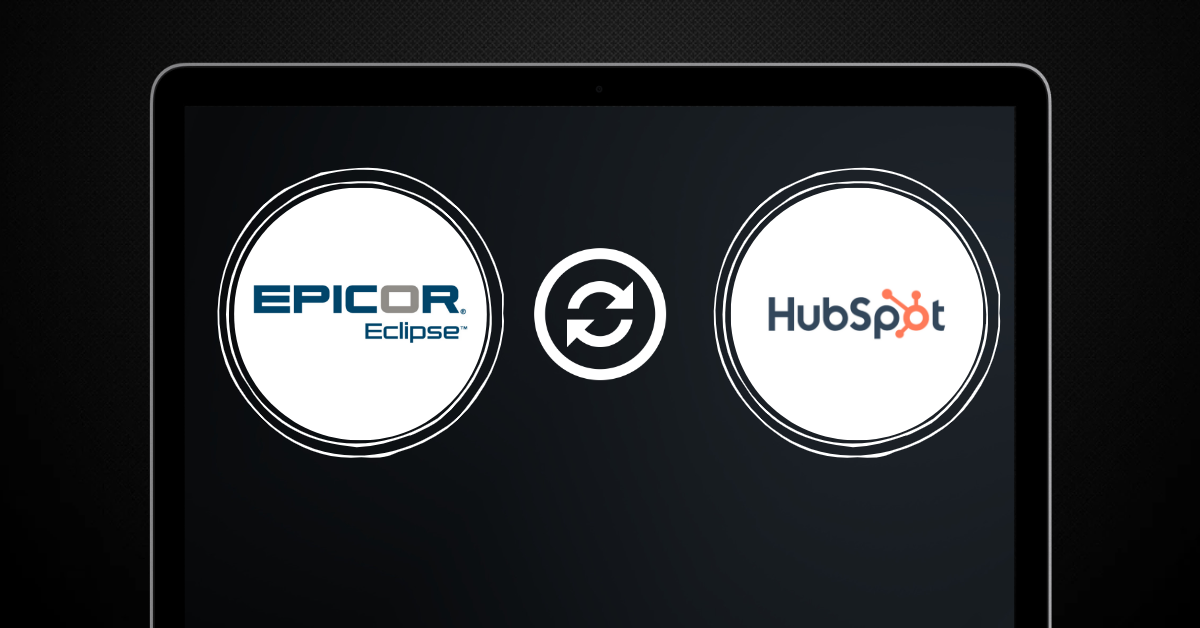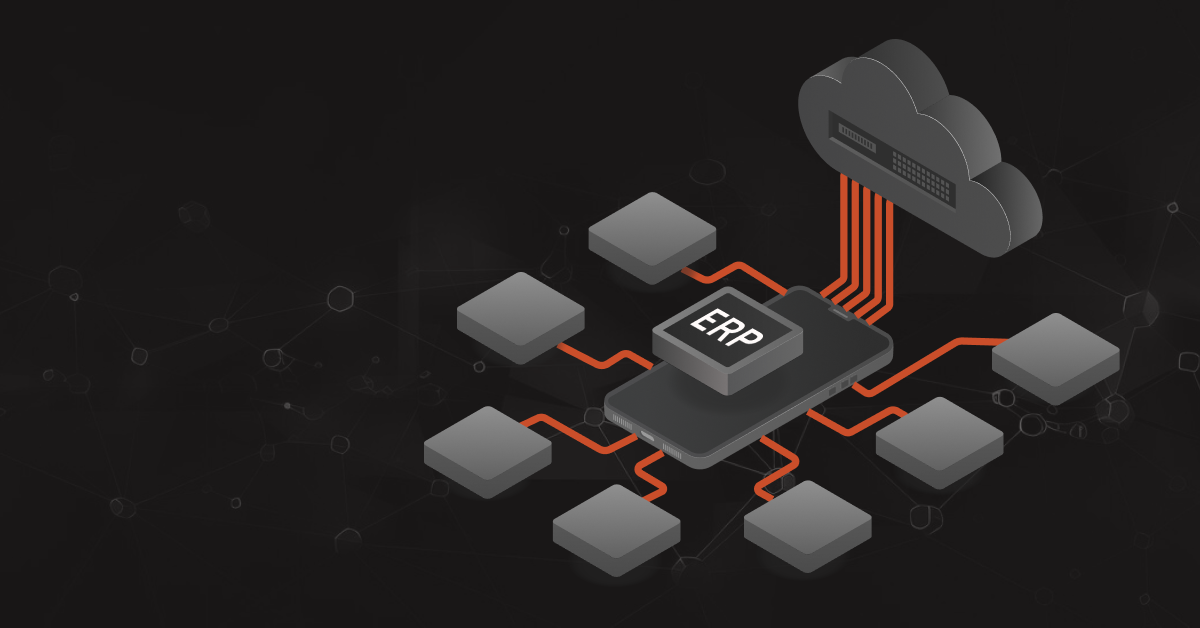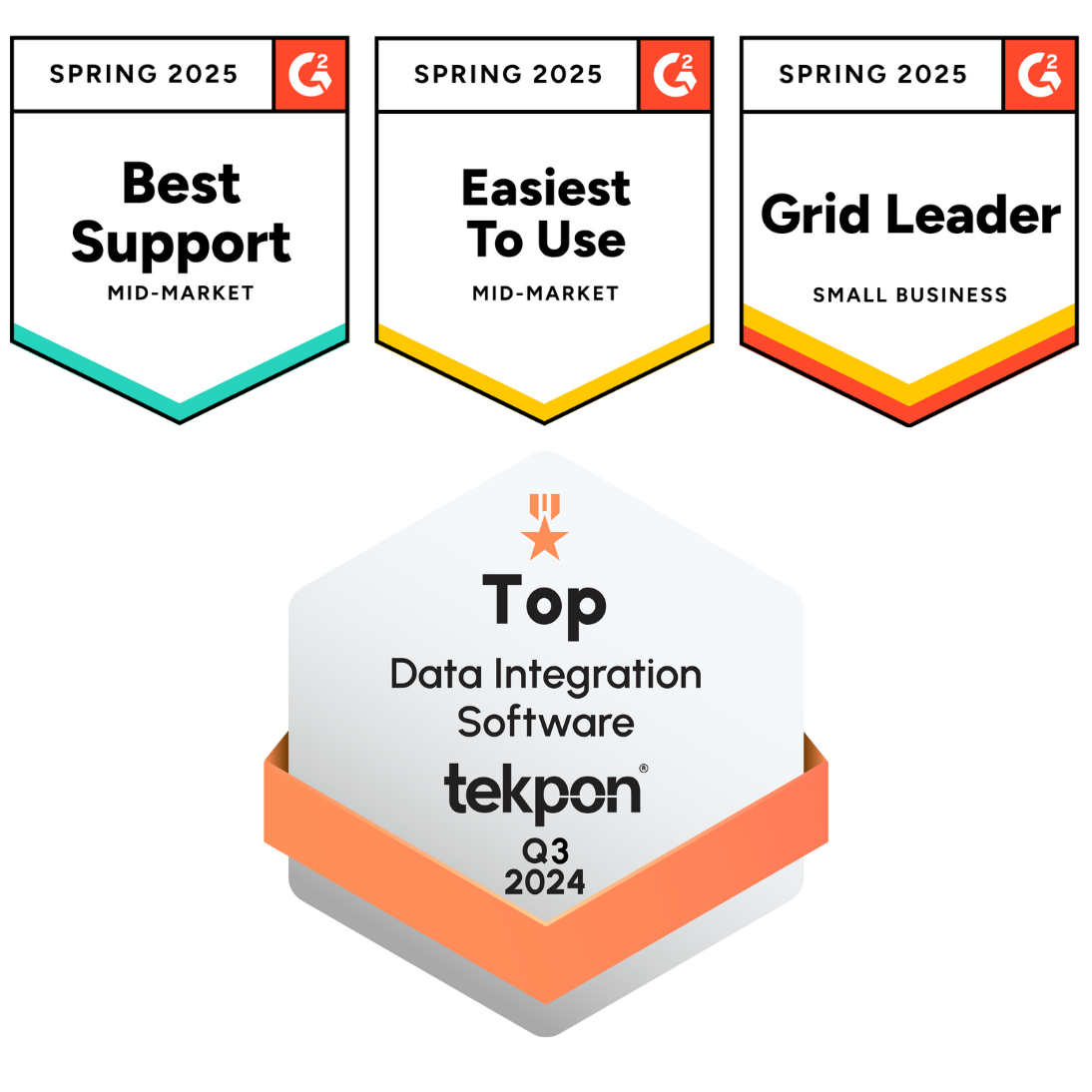Distributors selling online can face multiple challenges like meeting customer expectations, labor shortages, supply chain instability, and fast-developing technological changes. With the help of seamless operations, companies can cater to customers’ needs. But because of data silos, and disparate systems, real-time visibility, and operations get hindered.
Integrating Epicor Eclipse and HubSpot can automate many workflows associated with both systems.
Integrating your CRM & ERP
Integration can combine the all-in-one marketing strategy of the CRM with the data-driven functionality the ERP.
When your customer relationship management (CRM) and Enterprise Resource Planning (ERP) tools are regulated separately, it can lead to a loss of some crucial information needed for making vital business decisions. Not to mention the time invested in manual data entry and updates, a lack of coordination between teams and the steep cost of human errors.
Integration helps companies can get a practical and cost-effective approach for operations to run smoothly. A seamless flow of data and access to a single source of truth enhances cooperation between the sales, customer services, and back and front-office teams.
Methods To Integrate HubSpot CRM with Epicor Eclipse
During integration, the users and employees must be conscious of the concepts and tools to use CRM and ERP together.
1. Integration Platform / Middleware
This is the most recommended approach for most businesses. iPaaS is a cloud-based service that connects all the applications residing in the company cloud or on-premise, making it easy for companies to use a single cloud platform for deployment of systems in various environments. It’s ideal for businesses that:
- Want minimal technical overhead
- Need ongoing support and maintenance
- Want automatic updates for system compatibility
- Prefer a managed solution
2. Custom API Integration
API integration is an approach where integrations are done through a code system with specific codes that indicate how to receive or send data from various applications. Building a custom app using the HubSpot API and Epicor API to sync data between the two systems. This approach is best for businesses that:
- Have in-house development resources
- Need highly specific customizations
- Require complete control over the integration logic
Outcomes of HubSpot Epicor Eclipse Integration
Companies and businesses can find numerous tools for day-to-day marketing needs, but only a great marketing tool stands out. It depends on three important factors: maximizing the marketer’s time, improving efficiency, and integrating the tech stack of the company. HubSpot with the Epicor Eclipse Integrator app helps live events, providing the best features.
Easy to Use and Manage
The client will be involved in learning just one platform with their accounts instead of a whole new system. Users love one single platform where they get access to email campaigns, digital marketing tools, and contact management. Epicor and HubSpot users get benefited from manufacturing, controlling, and financial data processes in the automated workflows. Companies might not see any on-premise learning curve, as users are learning from a familiar platform.
DCKAP provides you with developer guidance and a support team for monitoring the integration process. They also take care of the back-end operations, analysis, updating software features, reviewing firewall securities, and ensuring the growth of the business.
Boosted Profitability
With one single system, the efficiency of the employees increases a lot. The sales team can work from the recent customer data and statistics to closing any leads. The financial team will be updated with the budgets and invoice information. There will be complete transparency in the process and system.
Variety of Services
Services offered by a CRM in the Enterprise Resouce Planning system are to increase revenue, generate more leads, and customer satisfaction with the service provider. It also helps in providing CRM implementation, marketing services, website development, sales enablement, app development, and customer success services.
Workflow Automation
With the help of automation, marketers can easily follow tasks and activities without any hassle. HubSpot automation workflow helps in automating sent emails, property fillings, and list buildings. It provides a better experience and easier operations and various prospects without any hassle. Automation helps in different manual workflows which might get tough at times to note.
This helps in efficiency in the work culture through routing leads to sales, email nurturing campaigns, sending internal notifications, list building and segmentations, and assigning or re-assigning properties.
Increasing Effective Communication Automatically
Pairing HubSpot CRM with Epicor Eclipse can help enhance how your business communicates with its customers. This is achieved by providing the right information to the right user at the right time. Automation aids the leads with relevant information without adding extra stress to your teams to deliver.
Analyzing Results with Closed Loop Reporting
For the formulated marketing strategies, it is vital to know what products and services needed to consider. During such times, closed-loop reporting can provide important insights. It helps in tracking the various developments from the beginning to the end. This helps in understanding the actions and approaches that a user needs to follow for success. Thus, combining both systems can help the business and clients provide valuable insights and effective sales and marketing efforts.
Challenges While Integrating HubSpot CRM with Epicor Eclipse ERP
Standard Data Format in Both Systems
The data systems are owned by various departments, so an integration process is needed for saving manual labor. ERP accounts might have some unique customer ID as first name or last name. CRM system also has a unique ID for every customer which consists of the first, middle, and last name. Thereby, working on these facts might need some consideration as it might lead to double data entry consuming space and time.
Agreeing on the integration approach
For selecting an integration approach companies can hire a third-party integration specialist who helps in connecting and linking the systems. As organizations have their own set of software for data mapping and reconfiguring, it should be bidirectional. The files need to be imported from one system to another using the same validation rules. These are done manually which delays the process taking hours.
Cleaning the data
Backlog data which were entered years ago needs to be cleaned before integrating. This can be a challenge as these data might have been in both systems. So, for avoiding any confusion customers need to select a customer ID from the ERP and change the existing CRM ID, so the data gets cleaned.
Using Integration Platform as a Service
Software as a Service (SaaS) helps in connecting and sending information directly from one app to another. Without integration, it gets time-consuming to enter all the data manually from one application to another.
SaaS integration has certain benefits involved which help businesses to adopt the automated integration platform. These kinds of platform help in iPaaS functions, ETL tools, apps for business events, and delivering real-time actions. API integration is an approach where the integrations are done through a code system. There is a certain set of codes that helps to indicate the ways to receive or send data from various applications. With the help of iPaaS platforms, it gets easier for API interactions without any technical API knowledge and guidance.
Streamline HubSpot and Epicor Eclipse Integration Using DCKAP Integrator
DCKAP Integrator offers hassle-free ERP integration and helps in integrating Epicor Eclipse with CRM, SCM, marketplaces, third-party software, eCommerce systems, and more. Some more features of DCKAP Integrator are:
- Provides a hybrid integrating platform
- Limitless integrations for Epicor Eclipse ERP via pre-built connectors
- Easy transfer of complex data and field connections.
- SSL certificate helps in encrypt transactions securing the data.
Apart from DCKAP Integrator, Jitterbit is also a well-known Enterprise Resource Planning integration company that looks after the needs of business solutions and marketing needs.
Frequently Asked Questions
Is DCKAP Integrator an iPaaS or SaaS?
iPaaS is a cloud-based service that connects all the applications residing in the company cloud or on-premise. With the help of iPaaS, it gets easy for companies to use a single cloud platform for the deployment of the systems in various environments. SaaS is a platform to deliver subscription software services through the internet. Some examples that include SaaS are Dropbox, Salesforce, and Google Workspace. Therefore, DCKAP Integrator is an iPaaS solution.
Why choose DCKAP Integrator over creating an integration system in-house?
Companies are moving towards a compressed and single management system. Seamless data synchronization between eCommerce platforms, CRM, and ERP system, makes the workflow of the organizations easy. Certain factors help the companies in selecting DCKAP Integrator:
- Helps in accelerating customer data transfer throughout the information management system.
- Eliminates manual data entry and maintains the consistency of the product data.
- With simple ERP integration, DCKAP helps to save time and increase productivity.
- Provide an excellent customer experience throughout your business.
- Simplifying the company’s tech stack for multiple e-commerce sites and distribution centers.
- Adds agility to the digital environment by synchronizing order management through drag-and-drop functionalities.
Does DCKAP offer personalized solutions for Epicor Eclipse integration?
Definitely a YES! At DCKAP, we understand the requirements of every business. DCKAP Integrator is designed to offer distributors limitless integrations customized to their preferences. Watch the introductory walkthrough to see DCKAP Integrator in action.
What are the main benefits to integrating Eclipse and HubSpot?
By integrating their ERP and CRM companies can gain the following benefits:
- Streamlining business processes, customer services, and sales workflows
- Creating a data integration approach between HubSpot CRM and Epicor Eclipse
- Preventing duplicate data and handling customized fields.
- Providing customers and prospects with a “CRM in the cloud” experience
Here are 6 frequently asked questions about HubSpot Eclipse integration with detailed answers:
What data can be synced between Epicor Eclipse and HubSpot?
The integration enables comprehensive data flow in both directions.
From Epicor Eclipse to HubSpot, you can sync:
- ERP customers to HubSpot Companies
- ERP contacts to HubSpot Contacts
- Invoice header and details to HubSpot Deals
- Products, pricebooks, and inventory information to HubSpot Products
Going the other direction:
- HubSpot Companies can create new Epicor Eclipse accounts,
- HubSpot Contacts can create new Epicor Eclipse contacts
- HubSpot Deals can generate new Epicor Eclipse orders.
This bidirectional flow ensures that your sales team has access to critical financial and inventory data while your accounting team receives updated customer and order information automatically.
What are the main challenges when integrating HubSpot with Epicor Eclipse?
One significant challenge is establishing a standard data format between both systems. ERP accounts might have a unique customer ID based on first or last name, while the CRM system has its own unique ID consisting of first, middle, and last name. This discrepancy can lead to double data entry, consuming unnecessary space and time.
Another challenge involves agreeing on the integration approach, as organizations often have their own software for data mapping and reconfiguring, requiring files to be imported from one system to another using the same validation rules.
Also, cleaning backlog data that was entered years ago presents difficulties since this data might exist in both systems, potentially causing confusion unless properly addressed before integration.
How does integration improve customer experience?
Integration enables businesses to provide a personalized user experience after every contact, which is becoming a key demand from customers shopping online. In an omnichannel environment, businesses can personalize the experience down to currency, language, and user preferences both pre and post-purchase.
The valuable information provided by the integrator helps nurture leads and build strong strategies and relationships with users, which aids in increasing sales and decreasing lost opportunities. When leads understand the product and service thoroughly through proper nurturing, they become confident and loyal customers who make more significant investments than non-nurtured leads.
The integration also ensures that sales teams can provide accurate, real-time information about inventory, pricing, and order status, creating a smoother buying experience.
How does workflow automation work with this Eclipse – HubSpot integration?
With automation, marketers can easily follow tasks and activities without any hassle. HubSpot automation workflows help in automating sent emails, property fillings, and list building, providing a better experience and easier operations for various prospects.
Automation helps with different manual workflows which might get tough to track, improving efficiency in work culture through routing leads to sales, email nurturing campaigns, sending internal notifications, list building and segmentations, and assigning or re-assigning properties.
Pairing HubSpot CRM with Epicor Eclipse enhances how your business communicates with customers by providing the right information to the right user at the right time, with automation aiding leads with relevant information without adding extra stress to your teams to deliver. This means routine tasks happen automatically while your team focuses on strategic activities that drive revenue.




